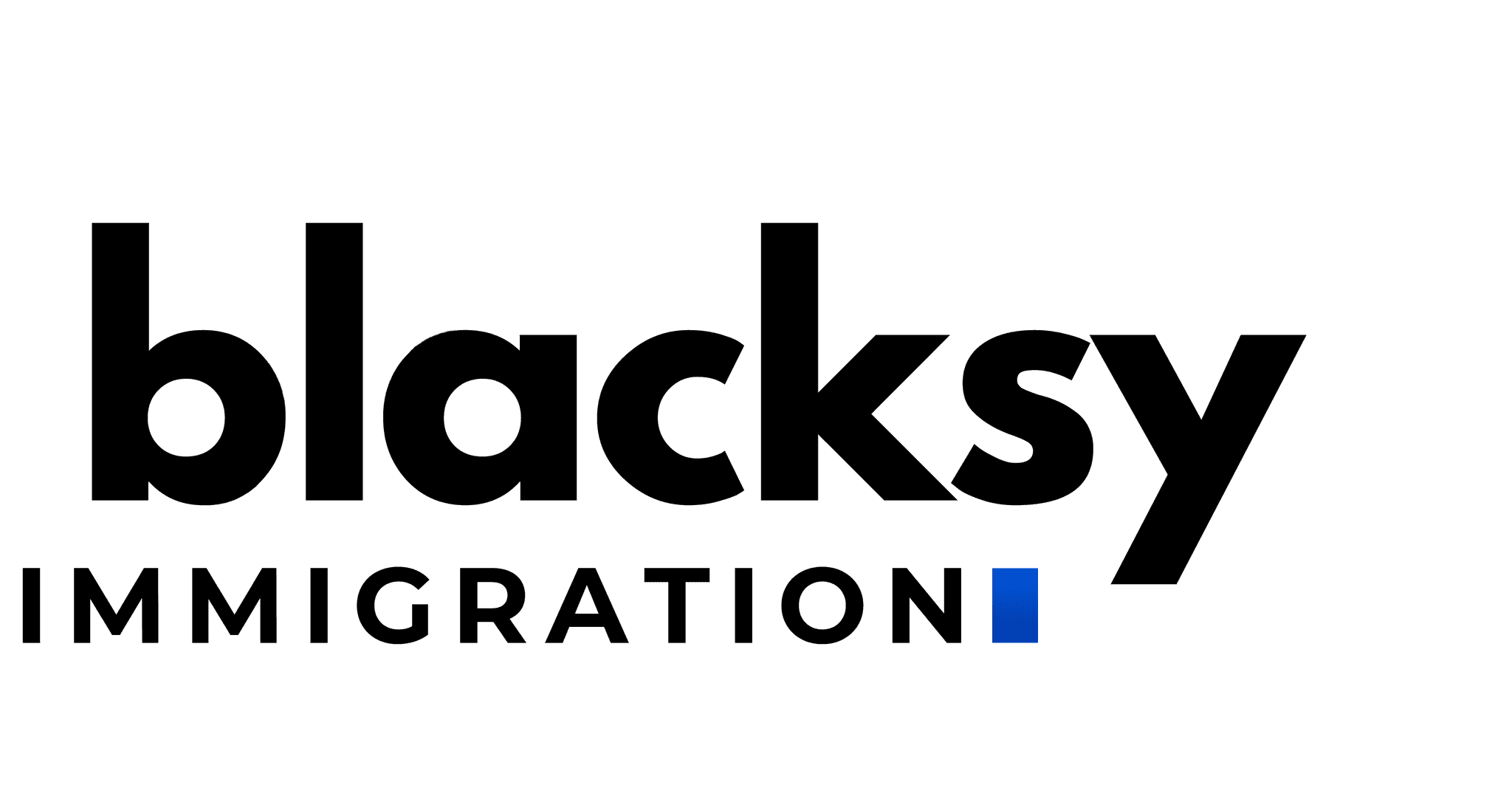Sunday Readings - The Conservative Party’s Potential Impact on Canada’s Immigration Policies in 2025
Dec 4, 2024

As Canada approaches the 2025 federal election, the possibility of a Conservative Party victory under Pierre Poilievre has raised important questions about the future of Canada’s immigration system.
Known for advocating economically aligned and security-conscious policies, a Conservative government could bring significant changes to immigration frameworks, aligning them with infrastructure capacity, labor market needs, and public sentiment.
Below, we delve into the likely implications of a Conservative win for Canada’s immigration policies.
1. Adjusting Immigration Targets to Reflect Capacity
The Conservative Party has been vocal about reassessing Canada’s high immigration targets. Under the current Liberal government, annual immigration levels are set to reach 500,000 permanent residents by 2025. Pierre Poilievre, however, has suggested that these numbers might be unsustainable given Canada’s current housing crisis and infrastructure deficits.
• Link to Housing Starts: The Conservatives propose tying immigration targets to housing availability, a measure aimed at preventing further pressure on an already strained housing market.
• Population Growth Concerns: By potentially lowering population growth rates, the party intends to mitigate challenges related to housing, healthcare access, and public services.
While specifics remain unconfirmed, it is likely that economic and family-class immigration categories could face a recalibration to match these priorities.
2. Emphasis on Economic and Skilled Immigration
The Conservatives are expected to refocus on skilled immigration pathways, prioritizing applicants who can contribute to high-demand sectors.
• Merit-Based Selection: A shift toward merit-based systems could favor skilled workers in industries such as technology, engineering, and healthcare.
• Credential Recognition: To address the persistent issue of underemployment among immigrants, the Conservatives advocate for expedited credential recognition. This includes proposals to license internationally trained professionals within 60 days of application.
These measures aim to ensure that economic immigrants integrate swiftly into the workforce, maximizing their contributions while reducing reliance on temporary foreign workers.
3. Temporary Foreign Workers and International Students
The Conservatives are likely to reevaluate temporary immigration streams, which have expanded rapidly in recent years.
• Reduction in Low-Wage Temporary Workers: Poilievre has suggested curbing the influx of low-wage temporary foreign workers, focusing instead on skilled and high-demand roles.
• Tighter Oversight of International Students: The rapid growth of international students has been flagged for its impact on housing and labor markets. A Conservative-led government could impose stricter regulations, possibly tying student intakes to educational institution capacity and regional housing availability.
While these changes aim to address systemic issues, they may also result in reduced opportunities for individuals relying on these pathways as a step toward permanent residency.
4. Stricter Border Controls and National Security
A Conservative government would likely strengthen border security and streamline processes to address irregular migration.
• Closure of Irregular Crossings: Measures like closing unauthorized border entry points, including Roxham Road, could be implemented to prevent irregular migration.
• Enhanced Security Screening: The party has proposed increasing resources for vetting processes, ensuring that immigration pathways are used appropriately and efficiently.
These policies reflect a broader emphasis on maintaining the integrity of Canada’s borders while balancing humanitarian commitments.
5. Balancing Economic and Humanitarian Objectives
Despite an economic focus, the Conservatives have expressed a commitment to Canada’s humanitarian obligations, though their policies might streamline refugee admissions to prioritize efficiency.
• Refugee System Reforms: Faster refugee determination processes and measures to address fraudulent claims are likely. Visa requirements for certain countries, such as Mexico, may be reintroduced to curb asylum claims.
• Family Reunification: Recognizing the role of family reunification in immigrant integration, the party supports maintaining this as a priority category.
This balanced approach seeks to address public concerns while upholding Canada’s international responsibilities.
6. Settlement Support and Integration Services
The Conservative Party has consistently emphasized the importance of integration for newcomers.
• Enhanced Settlement Services: Investments in language training, employment assistance, and other resources would aim to help immigrants adapt to Canadian society more effectively.
• Regional Distribution of Immigrants: Policies could encourage immigrants to settle in regions facing population decline or labor shortages, potentially revitalizing smaller communities.
Stable funding for settlement agencies would be critical to implementing these changes, ensuring equitable support across provinces and territories.
7. Public Consensus and Perception Management
Pierre Poilievre’s rhetoric highlights the need to rebuild the “Canadian consensus” on immigration. This entails aligning immigration levels with public infrastructure capacity and addressing concerns related to housing, healthcare, and education.
• Transparency in Policy: By involving Canadians in policy decisions, the Conservatives aim to foster greater public confidence in the immigration system.
• Regional Flexibility: Policies could be designed to reflect regional economic needs and housing availability, helping mitigate public opposition in areas with limited resources.
Potential Implications for Stakeholders
• Prospective Immigrants: Applicants, particularly those in lower-priority categories, may face longer processing times or stricter criteria. However, skilled workers and professionals with recognized credentials might find improved pathways.
• Employers: Businesses dependent on temporary foreign workers may need to explore alternative staffing strategies or invest more in domestic workforce training.
• Settlement Agencies: Organizations assisting immigrants may need to adjust to changes in funding, client demographics, and settlement priorities.
• Policy Makers: Striking a balance between economic benefits, humanitarian responsibilities, and public sentiment will require nuanced policy frameworks.
Conclusion
If the Conservative Party wins the 2025 federal election, Canada’s immigration policies are likely to undergo significant changes. From lowering immigration targets to prioritizing skilled workers and enhancing border security, these reforms aim to align immigration with Canada’s infrastructure and economic capacity. While some policies may limit opportunities for certain groups, others—such as credential recognition and settlement support—could enhance the integration experience for newcomers.
As stakeholders prepare for the election outcome, understanding these potential shifts is crucial for navigating Canada’s evolving immigration landscape. Whether these policies will achieve their intended balance between economic growth, public confidence, and humanitarian commitments remains to be seen.
—o—
About the Author
I’m Ahmet Faruk Ocak, a Canadian immigration lawyer and the founder of Blacksy Immigration Law Firm 🌊.
At Blacksy, we specialize in providing honest, straightforward, and tailored immigration solutions to individuals and businesses worldwide. Our brand promise is simple: no unnecessary fuss, no false hopes, and no empty promises—just realistic, reliable guidance to help you achieve your immigration goals.
Whether you’re expanding your business to Canada, transferring top talent, or planning your future here, we’re here to guide you with precision, transparency, and care.
Visit us at www.blacksyimmigration.com to learn more or to start your journey.
